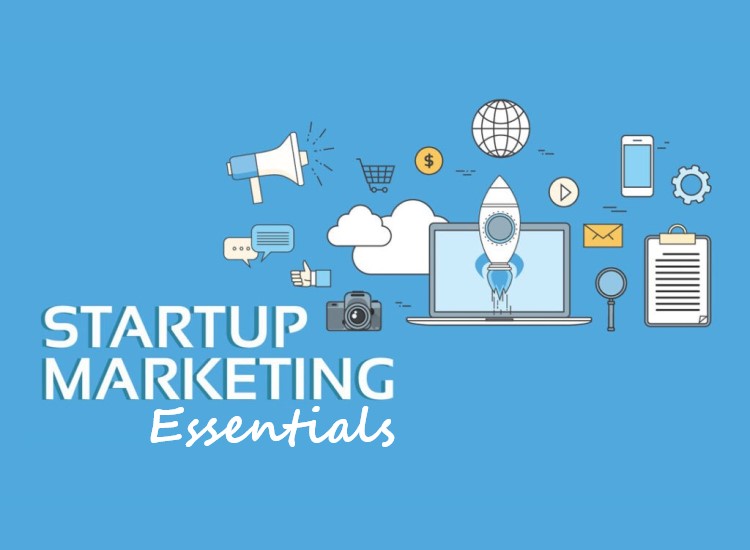
Defining Your Target Audience
Defining your target audience is one of the most important startup marketing essentials. Knowing who your ideal customers are helps you create strategies that resonate. Start by analyzing your product or service and asking what problems it solves. This process reveals the types of people who will benefit most from what you offer.
Conducting research is key to understanding your target audience. Look at demographics, such as age, location, and income, to get a clear picture of your potential customers. Dive deeper into psychographics—what interests, values, and challenges they may have. This insight enables you to create messaging that connects on a personal level, increasing the likelihood of engagement.
After identifying your audience, refine your approach through testing. Try different marketing channels, and monitor which ones attract the most engagement. Social media platforms, email campaigns, or content marketing may appeal differently depending on your audience. By focusing on your ideal customers, you make your marketing efforts more efficient and impactful. Defining your target audience lays the foundation for a strategy that builds meaningful connections and drives results.
Building a Strong Brand Identity
Building a strong brand identity is essential for making your startup memorable and trustworthy. A well-designed logo is one of the first steps, as it visually represents your business and leaves a lasting impression. Keep your logo simple and aligned with your brand’s values, so customers can easily recognize and remember it.
In addition to a logo, brand messaging plays a key role in defining your startup’s identity. Effective messaging speaks directly to your target audience, clearly expressing what you offer and how you stand out. Your brand voice should be consistent across all platforms, creating a cohesive experience for your audience. This consistency helps to build trust, as customers feel they know what to expect from your brand.
Visual identity goes beyond a logo and includes color schemes, fonts, and imagery that reflect your brand’s personality. Together, these elements form a recognizable look and feel that reinforces your brand’s presence. When building a brand identity, consistency is one of the most important startup marketing essentials. By maintaining a clear, cohesive brand, you build a reputation that customers can connect with and trust.
Creating a Content Marketing Strategy
Creating a content marketing strategy is essential for building trust and also driving traffic to your startup. Blogging is a great starting point, as it allows you to share valuable information with your audience. Well-written blog posts establish your brand as knowledgeable and approachable, encouraging visitors to return for more insights. Regular updates on your blog also improve SEO, helping you reach a broader audience.
Social media is another key aspect of content marketing and one of the startup marketing essentials. Platforms like Instagram, LinkedIn, and Twitter let you connect with your audience directly. Through engaging posts, visuals, and stories, you can keep followers informed about new products, services, or updates. Social media allows for instant feedback and interaction, building stronger relationships with your audience over time.
Email newsletters offer a more personal way to connect. By sending regular updates and exclusive content directly to subscribers, you keep your brand at the top of their minds. Newsletters can include blog highlights, product updates, or special offers. A well-rounded content marketing strategy, including blogging, social media, and email newsletters, helps build audience trust and brings consistent traffic to your site.
Leveraging Social Media Platforms
Leveraging social media platforms is one of the essential strategies in startup marketing essentials. Choosing the right channels depends on your target audience and the type of content you want to share. For example, if your audience is younger, Instagram and TikTok may be ideal. LinkedIn works well for B2B connections, while Facebook offers a broad reach for diverse demographics.
Once you select the right platforms, focus on creating posts that connect with your audience. High-quality visuals, like photos or videos, are effective in capturing attention. Craft captions that are short, engaging, and also informative, encouraging followers to interact. Use a consistent tone that reflects your brand’s personality, helping to build a recognizable presence across all channels.
Posting regularly keeps your audience engaged, but timing matters too. Experiment with posting at different times to see when your audience is most active. Responding to comments and messages promptly also builds trust, showing that you value your followers. By choosing the right platforms and crafting engaging posts, you make social media a powerful part of your marketing strategy. Social media done well can build loyalty as well as attract new customers.
Setting Up Basic SEO
Setting up basic SEO is an essential part of startup marketing essentials, helping to improve your online visibility and attract more visitors. Start with keyword research to identify terms your target audience searches for. Tools like Google Keyword Planner or Ubersuggest can help you find keywords relevant to your industry. Choosing the right keywords allows you to create content that aligns with what people are looking for, increasing the chance of ranking higher in search results.
On-page SEO focuses on optimizing individual pages of your website. This includes adding keywords to headings, meta descriptions, and also image alt texts. Using keywords naturally in your content makes it easier for search engines to understand your page’s topic, which can improve rankings. Additionally, including internal links to other pages on your site keeps visitors engaged and helps search engines map out your site’s structure.
Finally, creating valuable and informative content is crucial for effective SEO. High-quality content keeps visitors on your page longer, which can positively impact your rankings. Regularly updating your site with fresh content, like blog posts, also shows search engines that your site is active and relevant. By focusing on these basic SEO steps, you lay a solid foundation for your startup’s visibility as well as reach in search engine results.
Measuring Marketing Success with Analytics
Measuring marketing success with analytics is a core part of startup marketing essentials. Analytics help you understand customer behavior, track performance, and also refine your strategies for better results. Key metrics to monitor include website traffic, conversion rates, and engagement levels. Website traffic shows how many people visit your site, providing insight into the effectiveness of your outreach. High conversion rates, whether for sign-ups or sales, indicate your messaging resonates with visitors.
Tools like Google Analytics and social media insights make it easy to track these metrics. Google Analytics provides a detailed view of user behavior on your site, from the pages they visit to how long they stay. Social media insights, like those on Instagram or Facebook, help you measure likes, comments, and shares. By analyzing this data, you can see which types of posts attract the most interaction, guiding you in creating content that aligns with audience interests.
Regularly reviewing these metrics allows you to adjust your strategies. For instance, if website visitors are not converting, you may need to improve your landing pages or calls to action. Consistently using analytics helps you adapt your marketing approach, making your efforts more effective over time. Understanding as well as applying these metrics is essential for startups aiming to maximize their marketing impact and grow effectively.
Conclusion
Mastering startup marketing essentials sets a solid foundation for your business’s growth and visibility. From defining your target audience to measuring results, these steps keep you aligned with your goals and also audience needs. By using analytics, you gain insight into what works, allowing you to refine your approach over time. Staying consistent and adaptable with your marketing efforts helps build a brand that attracts as well as retains customers. With these essentials in place, you set your startup on a path toward lasting success and strong customer connections.


